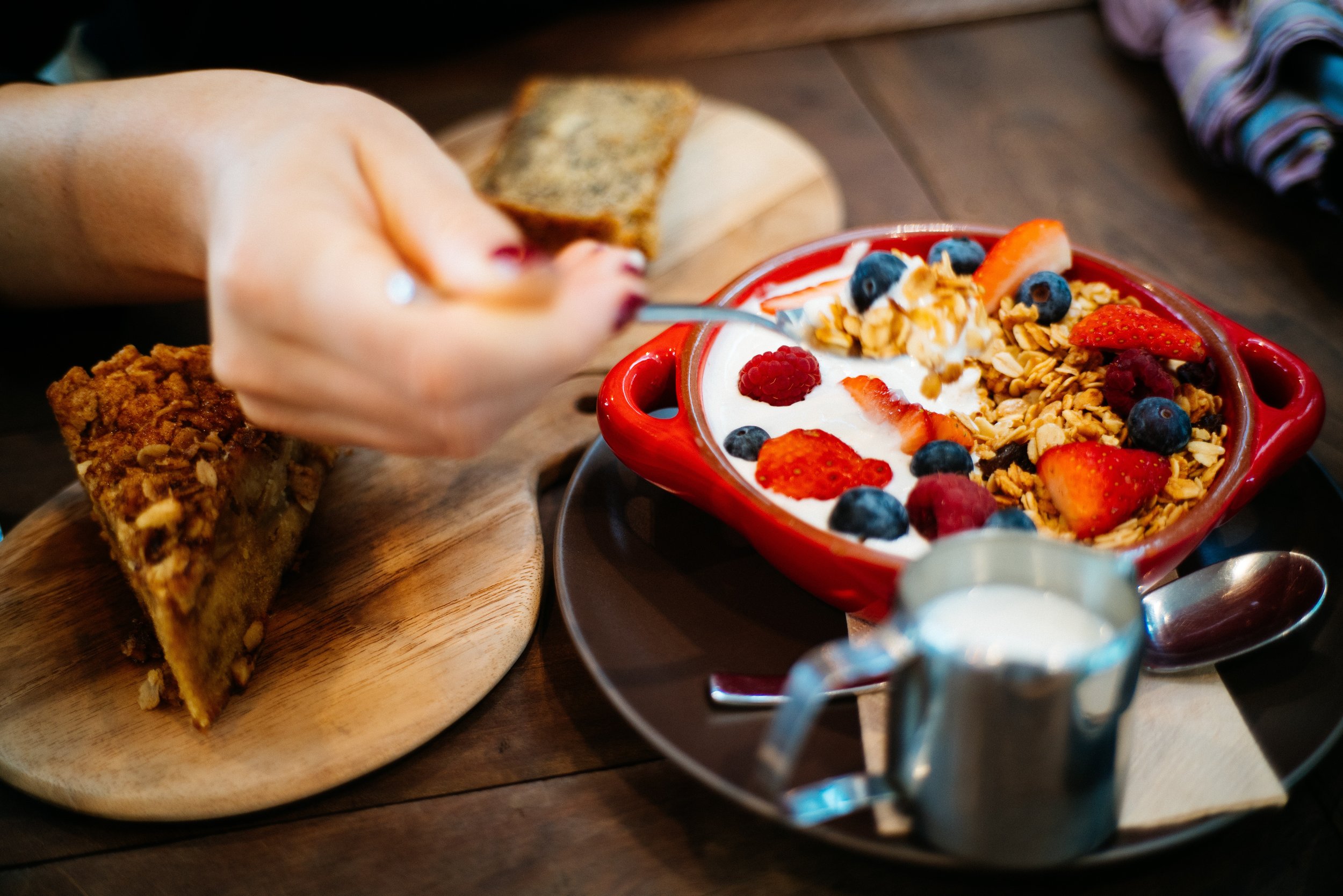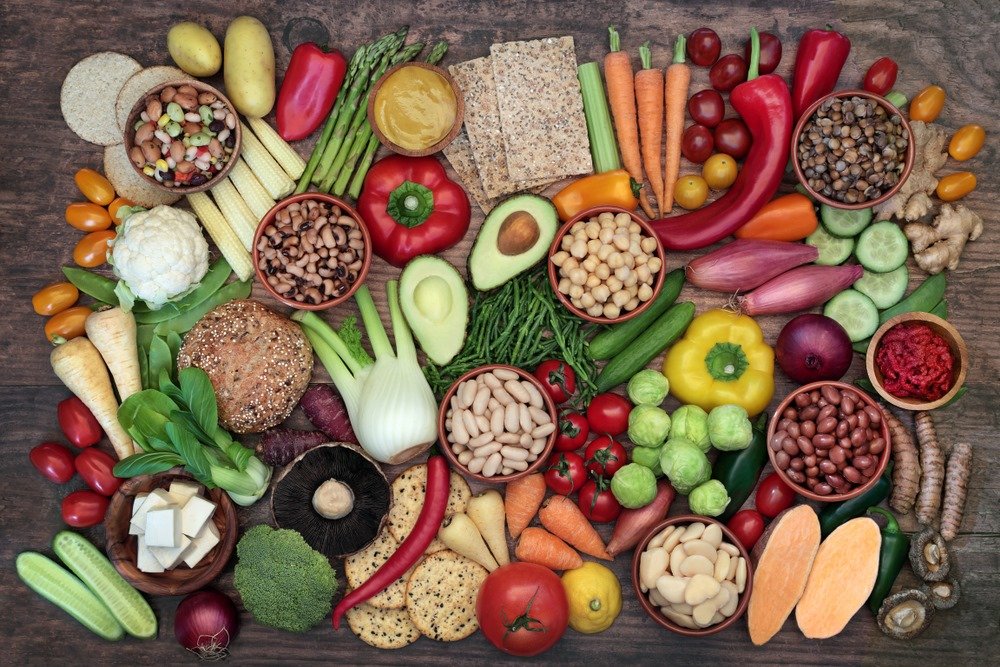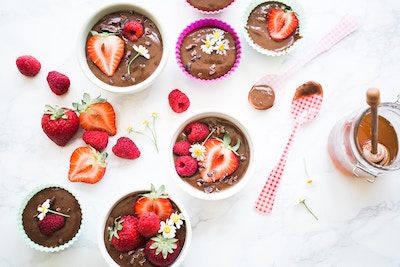Eating Well
Intermittent Fasting
Intermittent fasting (IF) has become very popular and it is not surprising. It promises better health and weight loss, just by narrowing the hours in the day when we eat. This is something many women have learned to do anyway, by skipping breakfast or other meals to minimise calorie intake and manage their time deficit.
There is also quite a lot of evidence (https://pubmed.ncbi.nlm.nih.gov/34579056/) reported to show that IF can help to improve insulin resistance, lower blood glucose and triglycerides, improve immunity, improve brain health, normalise fat metabolism and improve longevity. One of the problems is that most of the studies done have been done on men, and very few are women specific. Those that are point to women’s metabolisms suffering with IF in ways that are not often discussed. This article goes into this in more depth, but below I discuss the reasons I spend more time discouraging women from IF, than encouraging them.
Easy ways to Detox
Our bodies do a good job of detoxing. They are built to detox. The bowels take toxins out of the body. The kidneys filter and excrete through urine. The liver filters and transforms toxins with complex chemical reactions. The skin excretes toxins through sweat. We even breathe out toxins through our lungs. That’s a very simplistic overview, but it’s the gist.
So what’s the big deal about needing to ‘detox’? Well, there are a couple of things.
Eating Disorder Risks
Eating disorders are rife in our culture, and one of the biggest risk factors for developing an eating disorder is following an extreme diet. This means a diet that, for example, leaves out or minimises a food group (fat or carbs); is extremely low calories (eg 1200 calories); separates a person from being able to eat with family or socially; or cuts out animal products (vegan or vegetarian diet). While some people can do these things without developing an eating disorder, they are red flags and make a person 12-18x more likely to develop an eating disorder.
Other risk factors are so common that we may not even recognise them as risk factors for an eating disorder. For example, it is common to have an unhealthy body image. This means hating one’s body for how it looks. Weight stigma is also so common, and subtle criticism by others- family, social groups and the media- can cause an intense body dissatisfaction feeling, leading to damaging behaviours.
Binge Eating
Binge eating is always associated with food restriction. So many of my women clients are trying to lose weight but struggle with binge eating, which is terrible for their self-esteem. They feel they have no willpower, so there must be something wrong or weak about them.
However if you try to eat too little, your body will override your willpower. …….
Coffee & the Heart
More good news for those who love their coffee.
Coffee has positive effects on the cardiovascular system, with 2-3 cups a day showing the most benefit (more or less than that, less so for most conditions)……
Local......Mediterranean
There are many, many foods that are grown well here in WA. We have a Mediterranean climate, like the west coast of America, and the southern European countries. This means cool, wet winters, and hot dry summers. These conditions are different to the east coast of Australia, where the rain is more evenly distributed throughout the year.
The traditional Mediterranean way of eating is well studied and one of the healthiest on the planet. It promotes lower levels of cancer, cardiovascular disease, blood sugar issues and dementia. It promotes longevity. Here in Perth and the south-west we are in a win-win situation. Many Italian and other southern European families have grown food here for generations, and some still do in some suburbs of Perth.
Anti-Cancer Diet
The American National Cancer Institute has spent over $20million on a research campaign to determine the most cancer protective foods that we can include in our daily diets. This is what it came up with:
Diets that are based on plant foods, including lots of vegetables, fruit, wholegrains and legumes, are linked to lower rates of cancer. All vegetarian diets (including those which are vegan, include eggs, or include meat or fish up to once a week) are associated with overall lower rates of cancer.
Coffee & Alzheimer's
Drinking more than 1 cup of coffee daily may reduce the risk of Alzheimer’s Disease, according to a 2021 long term Australian study. This study went for over 10 years and the adults in the study were an average age of almost 70 when it started, and of normal cognitive ability. Over the next 10 years they were tracked and those with higher coffee consumption had a lower chance of transitioning to Alzheimer’s status in that time.
Food and immunity
Food can be important for a healthy immune system. In fact food has been a primary way people have traditionally managed illness. Some foods have much evidence for health benefits particularly around immunity:
One of these is yoghurt. Regular consumption of yoghurt is associated with reduced rates of many lifestyle diseases, better bone and muscle health, lower rates of cardiovascular disease……
The 6 tastes
There are 6 tastes we ideally need in our daily diet, according to Chinese and Ayurvedic medicine systems. Each of these tastes contributes to the health of our physiology, as well as mental, emotional and spiritual health. As all of us are unique, we might benefit from different amounts of these tastes, but we all benefit from all of them in some amount.
Plant-based Sources of Iron
With many people going on a plant-based/vegan or vegetarian diet, it is important to consider possible deficiencies, and iron is a common one, especially for menstruating women. Not everyone has a tendency to low iron, but some do, and plant-iron can be harder to absorb than iron from meat.
It helps to know what sort of plants are higher in iron, such as in the picture.
Is gluten-free right for you?
Is going gluten free healthier? Its become very popular, that’s for sure. Even, shall we say, fashionable. Many people have jumped on the bandwagon….but without necessarily knowing anything more than “gluten is bad” because they read it somewhere, or someone told them.
Have you gone vegan?
If you are a vegan, or mostly vegan, there are some nutrients you should keep an eye on.
More vegetables please.
Something my clients hear me say a lot is to eat more vegetables, fruit and legumes because hardly anyone eats as much as is optimal. I don't advocate any one diet for clients (I am not vegetarian although some of my clients are and I support that), but hardly anyone eats even the government recommended 2 fruit and 5 veg servings a day. And I would say if you need to heal from chronic health issues, that would be an absolutely bare minimum.
Finding Food Balance in the Holidays
It can be a difficult time of year for many people who are learning to make better food choices, want to lose weight, (or just maintain weight), or who react to many foods. It can also be a challenging time for those of us who prefer healthier foods and eat really well most of the time, but when confronted with different choices and outside of the normal routine, find ourselves eating things we normally wouldn’t even be tempted by!
A Healthier Christmas
At this time of year many people are starting holidays and often that leads to drinking too much alcohol and snacking on unhealthy foods. It doesn’t have to be that way, and it can also be a time of rest, nourishment, sunshine and swimming, connection with family and friends, and looking after your health in ways you may not have had time for over the year.
Superfoods to thrive
By supercharging your diet with foods and herbs which are high in nutritional density and unique compounds, you can help insure against gaps in your diet.
The soy debate
Is soy a health food or a source of major health problems? I have done the research, from scratch, looking at the dozens of studies on this subject.
Arsenic in rice
Yes, unfortunately it IS an issue, even with organic rice. Arsenic levels have been found to be highest in processed rice foods such as rice cakes, rice crackers and baby rice porridge, but also in normal rice, and even higher in brown rice.





















